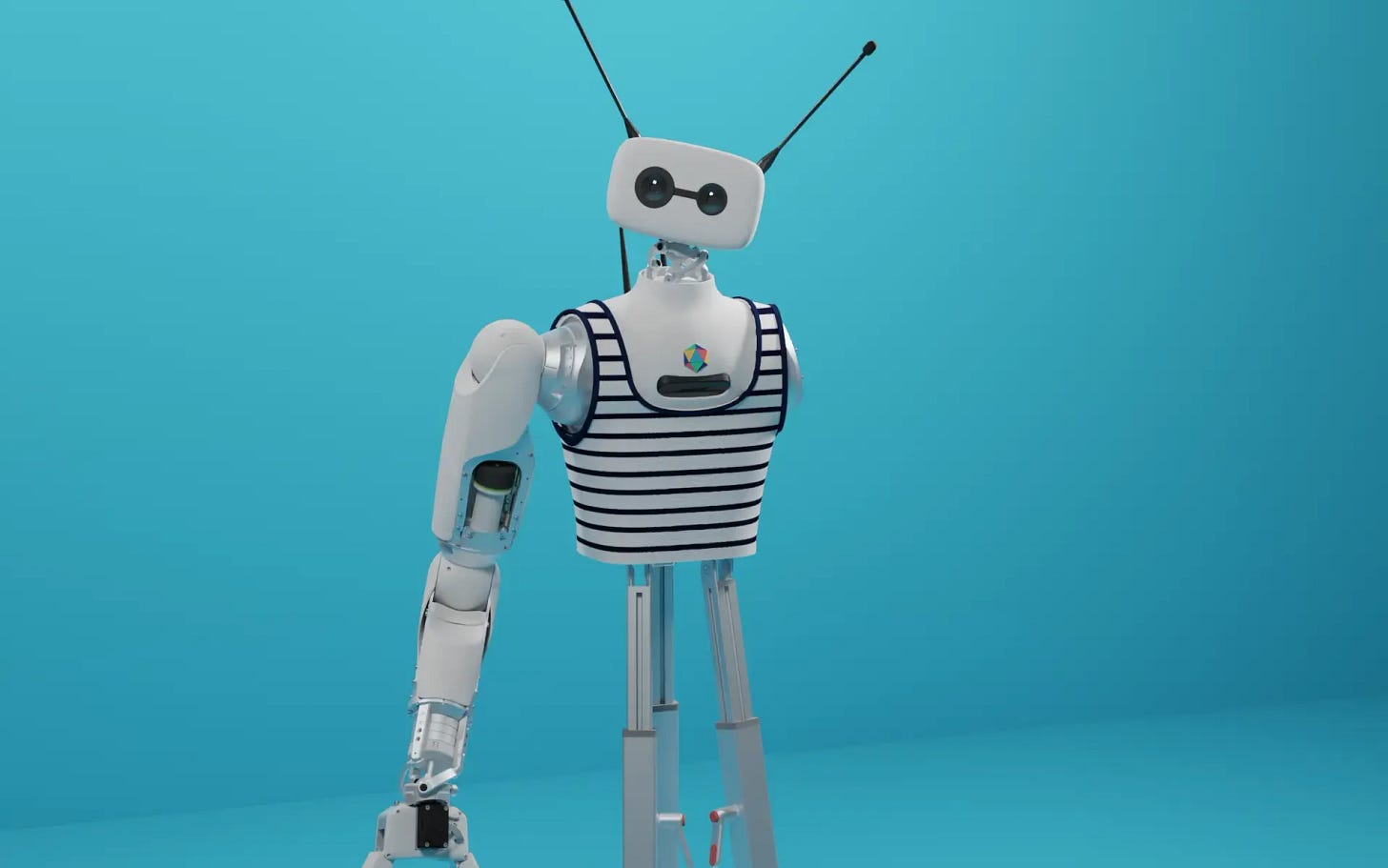New ChatGPT Smarter Than 98%, Cheap Gemini 2.5 | Weekly Edition
PLUS HOT AI Tools & Tutorials
Hello and welcome to our weekly roundup!
It's been a busy week. After a break in model releases, OpenAI rolled out several big updates (which are a heck of a lot of things) and also participated in a series of intriguing speculations.
We covered the latest OpenAI’s models in the previous post:
The others haven't faltered either. Google showed an affordable model for those who want to create AI apps, and Anthropic continues to dive into the enterprise niche.
All in all, there's a lot to discuss! Let's get started.
This Creators’ AI Edition:
Featured Materials 🎟️
News of the week 🌍
Useful tools ⚒️
Weekly Guides 📕
AI Meme of the Week 🤡
AI Tweet of the Week 🐦
(Bonus) Materials 🎁
Get 20% OFF Full Access subscription!
Featured Material 🎟️
Gemini 2.5 Flash for Builders
Google has released a preview of Gemini 2.5 Flash, a version of its flagship model tuned for speed and cost but able to reason when asked, and only as much as a user wants.
The model is live in Google AI Studio, the Gemini API, and Vertex AI, with a drop‑down in the Gemini app for quick tests.
Gemini 2.5 Flash is Google’s first hybrid reasoning model.
Developers can set a thinking_budget parameter anywhere from 0 to 24,576 tokens; at budget 0, the model answers as fast as last year’s 2.0 Flash, while higher ceilings unlock multi‑step reasoning for harder prompts such as engineering math or dependency‑aware code evaluation.
Flash ranks just behind 2.5 Pro on the Hard Prompts in LMArena benchmark, yet costs far less to run, extending its “price‑to‑performance Pareto frontier.” Token pricing in the preview starts at $0.15 per million input tokens and $0.60 per million output tokens when reasoning is enabled, with about a 40% discount if thinking is off.
Keep your mailbox updated with key knowledge & news from the AI industry
Flash targets high‑traffic chatbots, live summarization, and customer service, where every millisecond and cent counts, and Google plans to bring Gemini models to on‑premise Nvidia Blackwell systems later this year.
This is part of a broader industry push toward resource‑aware “reasoning” models, which you could also see at OpenAI, Anthropic, and DeepSeek.
You can try Gemini 2.5 Flash in AI Studio right now.
News Of The Week 🌍
ChatGPT Surpasses 98% of Human Population
An independent evaluation using the Mensa Norway matrix‑reasoning exam placed OpenAI’s o3 model at an IQ of 136. This score is higher than roughly 98% of the human population. The seven‑run rolling average was logged by TrackingAI, which monitors commercial and open‑source systems on standardized cognitive tests.
In addition, results show o3 outpacing rivals such as Gemini 2.5 and Meta’s Llama 4 Maverick (though analysts caution that IQ benchmarks capture only a slice of real‑world reasoning).
The Verge: OpenAI Tests ChatGPT‑Centric Social Network
According to The Verge, OpenAI has built an internal prototype of a social network that shows AI images in a scrolling feed instead of text posts. The early version lets users share pictures produced by ChatGPT and view other people’s creations in one place. Insiders say Sam Altman has circulated the app among friends and advisers for feedback while the company decides whether to release it as a standalone service or fold it into ChatGPT.
OpenAI didn’t comment on the information.
xAI Adds Grok Studio Workspace
Grok users now see a “Studio” button that opens a split‑screen canvas for writing documents, coding snippets, reports, or games alongside the chatbot. The tool supports live code execution and shows previews next to Grok’s answers to speed iteration. The update allows direct attachment of Google Drive files, so spreadsheets and slides can flow straight into a prompt.
xAI says the feature is live for both free and paid accounts.
In addition, the startup has added a “memory” feature to Grok.
Figma Orders Lovable to Drop “Dev Mode” Label
Figma has issued a cease‑and‑desist letter demanding that no‑code startup Lovable stop branding its code‑editing pane as “Dev Mode,” a term Figma trademarked in 2024. The design giant argues that using the shortcut risks consumer confusion because Figma already markets a developer‑handoff feature under the same name.
Lovable’s CEO said the company will not rename the tool, noting that “dev mode” is generic in software (and broadly used by firms such as Apple and Google).
Anthropic Brings Claude to Google Workspace with Research Mode
Anthropic released two upgrades for Claude. Research mode now runs a chain of web searches, gathers sources, and shows citations so users can check each fact. A new Workspace link lets the assistant read Gmail, Calendar, and Drive documents to summarise meetings and note next steps.
Both features launch in beta: Research for Max, Team and Enterprise customers in the United States, Japan and Brazil, and the Workspace connection for all paid tiers once company admins enable access.
OpenAI Rolls Out Flex Processing for Cost‑Sensitive Tasks
OpenAI has introduced Flex processing, a beta API tier that offers lower prices in exchange for slower responses and occasional resource unavailability. The option halves the cost of using the o3 and o4‑mini models, cutting o3 to $5 per million input tokens and o4‑mini to $0.55.
It targets non‑production tasks such as model evaluations, data enrichment, and other asynchronous jobs that can tolerate lag.
Sharing is caring! Refer someone who recently started a learning journey in AI. Make them more productive and earn rewards!
Google’s Veo 2 Video Model Lands in Gemini Advanced
Gemini Advanced subscribers can now pick Veo 2 from the model menu and generate eight‑second clips from text prompts. The updated model brings sharper physics, smoother character motion, and SynthID watermarks to flag AI‑made footage. A separate Whisk Animate experiment lets Google One AI Premium users turn a single image into a short video with the same engine.
Hugging Face Acquires Pollen Robotics and Its Reachy 2 Humanoid
Open‑source AI platform Hugging Face has bought French startup Pollen Robotics, maker of the two‑armed Reachy 2 robot. The company plans to keep selling the hardware while posting design files and control code so researchers can modify parts or train new behaviours.
TechCrunch notes that Hugging Face partnered with Pollen last year on a home‑robot demo. That makes the takeover a logical extension of that work.
Useful Tools ⚒️
Omakase.ai Voice – Your Voice-Powered Sales Agent. One URL
Product Hunt MCP – Connect Product Hunt data to any LLM or agent
Heatbot.io 2.0 – Generate improved websites from heatmaps with AI
Boxo – Quickly deploy AI-generated features in your mobile app
DocsHound – AI turns demos into instant docs, chatbots & user insights
DocsHound is a platform that turns a brief screen demo of the product into living documentation, a ready‑to‑deploy support chatbot, and usage‑insight dashboards. It parses the recording with computer‑vision cues, slices the flow into annotated screenshots, and writes step‑by‑step guides, FAQs, and release notes without manual input.
It's a nice tool for almost any SaaS.
Share this post with friends, especially those interested in AI stories!
Weekly Guides 📕
A practical guide to building agents - by OpenAI
How to Build an MCP Server for LLM Agents: Simplify AI Integration
Create The Ultimate AI Assistant With Claude and MCP
These 5 AI prompts work like magic — no matter which chatbot you use
Free Google AI & Notebook LM Tutorial, Prompt Engineering Guide and more!
AI Meme Of The Week 🤡
AI Tweet Of The Week
Take note!
(Bonus) Materials 🏆
AI 50 2025: AI Agents Move Beyond Chat
Vibe Check: o3 Is Here—And It’s Great
Google’s Elizabeth Reid: ‘Human curiosity is boundless and people ask a lot of questions’
Voice AI & Voice Agents - An Illustrated Primer
Generative AI is learning to spy for the US military
Share this edition with your friends!











